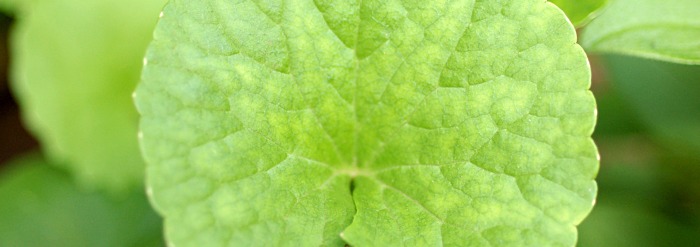SINGLE HERB RASAYANA FOR EACH DHATU AS PER AYURVEDA
Rasayana therapy can be given to healthy individuals to improve tissues and maintain health, as well as to those experiencing imbalance by supporting better immune resistance
1. Haritaki
Latin name: Terminalia chebula
Tissue layer: Rasa dhatu
Haritaki works on all three doshas—vata, pitta, and kapha, and particularly on vata. It has five of the six tastes (all except salty). This is the fruit that the Medicine Buddha holds in his hands while meditating.
- Har means “to purify.” It clears the malas (wastes) from the tissues and helps cleanse the intestines, thereby acting as a rejuvenator.
- Useful in working with neuromuscular weakness and diminished vision.
- Promotes abdominal comfort, a healthy digestive environment, and healthy elimination.
- Supports the healthy function of the liver and kidneys.
- Bolsters heart health and protects against blood disorders.
2. Guduchi
Latin name: Tinospora cordifolia
Tissue layer: Rakta dhatu
Guduchi means “protector of the body.” It also goes by the name Amrita, meaning “the herb for immortality.” Good for all three doshas, it has a bitter taste, hence it is called tikta rasayani.
- One of the best restorative, immune-boosting herbs.
- Reduces ama (toxins) and removes impurities from the body.
- Helps support a normal body temperature and reduce excess pitta in the system.
- Promotes a healthy inflammatory response and comfortable joints.
- Supports liver purification by cleansing the blood and promotes a healthy, clear complexion.
- Restores and kindles the dhatu agni.
3. Amalaki
Latin name: Embelica officinalis
Tissue Layer: Mamsa dhatu
The A in amalaki translates to “no” and mala means “impurities,” describing this herb’s power to clear and remove toxins from the body. Amalaki is an excellent ally for pitta dosha and contains five of the six tastes (all except salty).
- Destroys ama or toxins in the body and keeps you healthy and young.
- Strengthens the nervous system, bone marrow, and sense organs.
- As a brain tonic, improves memory and balances vitiated sadhaka pitta.
- Helpful for balanced elimination and comfortable digestion.
- Supports the health of the liver, eyes, and uterus.
- Rasayana for all dhatus, or bodily tissues.
- Supports muscle tissue by improving neuromuscular strength and flexibility.
4. Kumari/Aloe Vera
Latin name: Aloe barbadensis
Tissue Layer: Meda dhatu
Kumari is often translated to “maiden” or “young girl” (it’s called this because the plant looks young even when it grows old). This cooling, fluid-rich plant calms and balances pitta.
- Promotes balance during menstruation, relieving occasional menstrual cramps and PMS.
- Supports those who are going through menopause.
- Promotes the flow of blood to the uterus and supports smooth menstruation.
- A bitter tonic for the digestive system, increasing secretions for a mild laxative effect.
- Helps cool and purify the blood.
- Supports the health and youthfulness of the skin and hair.
- Boosts metabolism and reduces excess fat tissue with a mild scraping action.
- Relieves non-cystic acne and cools red or bloodshot eyes.
5. Guggulu
Latin name: Commiphora mukul
Tissue layer: Asthi dhatu
Guggulu, or guggul, means “helping all kinds of imbalances.” Guggulu is a resinous substance with a powerful scraping action that balances all three doshas.
- Useful in promoting joint comfort and reducing cracking in the joints.
- Helps maintain bone health and porosity in old age.
- Useful in detoxification as well as rejuvenation.
- Kindles agni, scrapes excess fat, and supports weight loss.
- Excellent for blood purification.
- Supports healthy lipids and cholesterol levels already within the normal range.
6. Brahmi/Gotu Kola
Latin name: Centella asiatica
Tissue layer: Majja dhatu
While both gotu kola and bacopa are commonly referred to as brahmi and are very similar in action, we will focus here on brahmi/gotu kola.
Brahmi is a Sanskrit word that comes from the root Brahma—creator of the universe. Brahmi means “that which gives us knowledge and makes us intelligent.”
- An incredibly valuable plant for the brain and entire nervous system.
- As a brain tonic, it enhances intelligence, cognition, and memory.
- Helps build focus, concentration, and mental acuity.
- Promotes awareness and relaxes the mind and nervous system.
- Supports a good night’s sleep, especially for those with racing minds.
7. Ashwagandha
Latin name: Withania somnifera
Tissue layer: Shukra dhatu
Reputed for having the “strength of ten horses,” ashwagandha is well-known for its building, strengthening, and rejuvenating properties. Warming and grounding, it is best for vata dosha.
- Supports sound sleep and a relaxed nervous system.
- Helps the body cope with external changes in environment and internal moods.
- Supports healthy adrenal function and helps reduce stress and fatigue.
- Improves energy and promotes a general sense of well-being.
- Enhances sexual potency.
- Supports strong, healthy tissues as the body ages.
- Promotes a healthy, robust immune system.
These seven rejuvenating herbal allies are just a taste of the vast world of Ayurvedic herbs.

